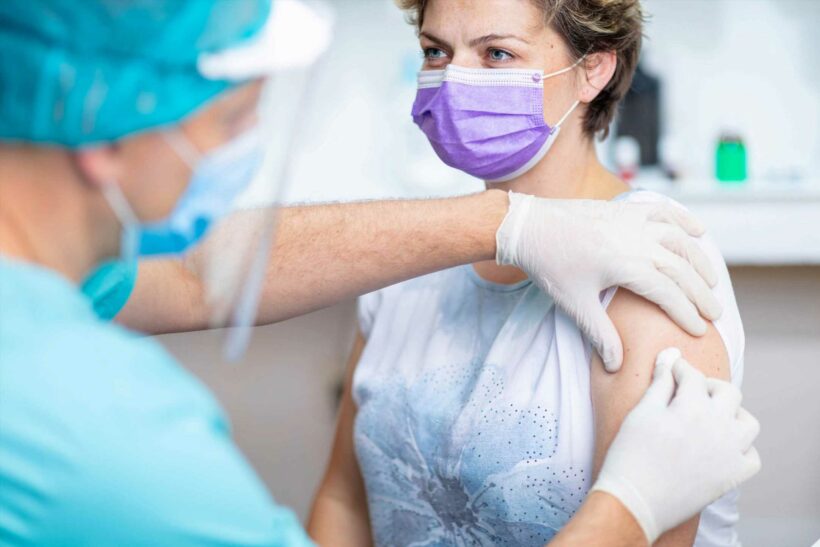GPs have been told to "discourage face-to-face appointments" and use virtual consultations instead in the wake of the pandemic.
Under new NHS guidance, family doctors are to screen their patients over the telephone first before deciding if they need an in-person appointment.
🔵 Read our coronavirus live blog for the latest updates
The measures were introduced at the start of the first lockdown to keep stop the spread of the virus.
Updated NHS guidance now states that this system will be made a permanent fixture.
The Telegraph has reported that when people ring their doctors to book an appointment they will be encouraged to use the online system instead.
It adds that patients who try to get a face-to-face appointment should be deterred in order to prevent "disincentivising the use of the online system".
"Quick wins" have been recommended in the guidance, which includes using pre-set messages.
Guidance also says the new service could be carried out "very quickly" and recommended "quick wins" such as the use of pre-set questions.
Patients who require an in-person appointment will still have access to this, but the new guidance says that some cases can be dealt with entirely over the phone or online.
'QUICK WINS'
Royal College of GPs has expressed concern that the virtual service offered by doctors during the pandemic should be overhauled.
In the 17-page advice which was updated last month tells GPs: “Avoid directly booking patients who telephone the practice into an appointment (although there may be some agreed exceptions). This prevents disincentivising use of the online system.”
“Discourage patients from attending the practice to book appointments. If they do attend in person, demonstrate the process using a smartphone or kiosk”
In the new guidance it states the measures are to "protect patients and staff from avoidable risks of infection" – the same message that was issued at the start of the first lockdown.
Professor Martin Marshall, chairman of the Royal College of GPs said the changes pose a "very real risk" of damaging the relationships between patients and their doctors and severe health problems being missed.
A lot of what we do is build a trusting relationship and to do that you need to be in the same room, so you can pick up the ‘soft signs.’
“Once we get out of the pandemic, and things return to a more normal way of living and working, we don’t want to see general practice become a totally, or even mostly, remote service,” he told The Telegraph.
He added: "A lot of what we do is build a trusting relationship and to do that you need to be in the same room, so you can pick up the ‘soft signs.’"
This comes as a man's leukaemia was misdiagnosed as tonsillitis for two months because doctors did not want to examine his throat in the pandemic, he claimed.
Ben Peters, 22, could only send pictures of his golf ball-sized tonsils and got four courses of antibiotics as a result – which did nothing to help.
His cancer was only found after he demanded to see doctors on Boxing Day because he could barely eat or breathe.
Ben, from Swindon, Wilts, said: “I just knew that something wasn't right, but I didn't expect the diagnosis.
“I couldn't breathe or get out of bed. I hadn't even been able to eat my Christmas dinner, I was miserable.”
"I knew [the medication] wasn't working, at this point my tonsils were filling the back of my throat.
"I had to keep phoning in sick, ultimately risking my job."
He noticed his symptoms in October – but was unable to book an appointment with his Priory Road surgery until November.
Even when he was rushed to Great Western Hospital, he was told for the third time that he had tonsillitis.
But they decided to check the retail worker for something more serious and three days later confirmed he had acute lymphocytic leukaemia.
Ben added: "My whole world just shattered. I can remember being told and feeling like I was being pushed back against my chair and I couldn't get up."
He was transferred to a hospital in Oxford where he spent 40 days as an inpatient. He is now in remission and returned home.
Source: Read Full Article


